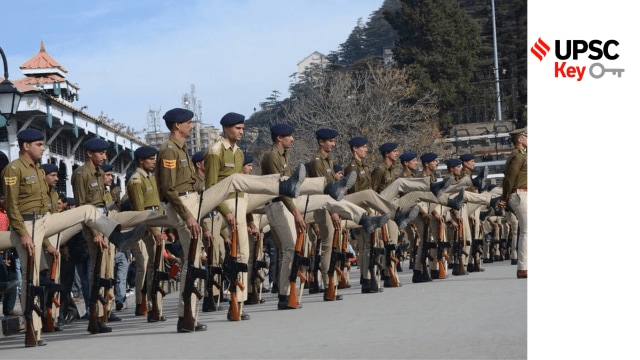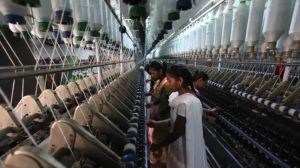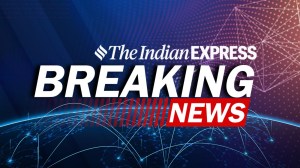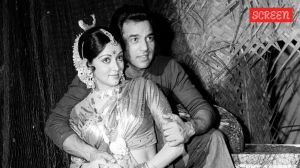
SC lets BCCI amend cooling-off clause, sets stage for Ganguly and Jay Shah to continue
Syllabus:
Preliminary Examination: Current events of national and international importance.
Main Examination: General Studies II: Important aspects of governance, transparency and accountability
Key Points to Ponder:
• What’s the ongoing story- In an order that paves the way for BCCI president Sourav Ganguly and secretary Jay Shah to continue for another term in office, the Supreme Court on Wednesday allowed the cricket board’s request to permit amendments to its constitution so as to modify the requirement of a mandatory three-year cooling-off period for its officials.
• Board of Control for Cricket in India (BCCI)-About, role and nature of work
• Board of Control for Cricket in India (BCCI) is what-is it a government body or is it a society?
• BCCI is registered as a society in which state?
• Board of Control for Cricket in India (BCCI) comes under Article 12 of Indian constitution?
• By the way, what Article 12 of Indian constitution says?
Story continues below this ad
• Board of Control for Cricket in India (BCCI) was formed before or after independence?
• What are the controversies or issues with the governance of Cricket in India?
• Have you heard of Lodha Committee appointed by the Supreme Court of India?
• Why Supreme Court of India appointed Lodha Committee?
• What were the Lodha Committee’s recommendation?
• “The BCCI “cooling-off” debate is one between monopoly and continuity”-What is the “cooling-off” debate?
Other Important Articles Covering the same topic:
Story continues below this ad
📍BCCI was waiting for weather to change, says reform panel head Lodha
📍Cooling off period in BCCI gets watered down
📍BCCI vs Lodha Committee: Everything you need to know
Eye on graph, Himachal Pradesh Police has been working to check crime rate — NYPD its model
Syllabus:
Preliminary Examination: Current events of national and international importance.
Main Examination: General Studies IV: Case Studies
Key Points to Ponder:
• What’s the ongoing story- The data on the dashboard was stark and called for immediate action: week after week, over 25 per cent accidents across the state, including in districts such as Shimla, Kullu and Mandi, happened between 6 pm and 9 pm. At the weekly meeting chaired by the DGP of the Himachal Police, it was decided that more traffic personnel would be deployed during these hours, instead of during the afternoon hours, when traffic was lean. The results followed: In 2021 there were 1.73 lakh traffic accidents, down from 1.81 lakh accidents in the pre-pandemic year of 2019.
• What is ‘predictive policing’, with which the Himachal Police have been working with?
Story continues below this ad
• What the latest NCRB data for Himachal Pradesh says? Has crime reduced in Himachal Pradesh?
• One of the key focus areas of the Himachal police’s weekly data analysis is ‘crimes against women’- so, how they are able to get ahead of the crime curve?
• Do You Know-The recent NCRB report said Himachal stood second in the country for ‘kidnapping recoveries’, with an average of 85.4% as against the national average of 50.8.
• According to DGP Sanjay Kundu, “his team’s predictive policing is inspired from an idea that the New York Police Department, headed by the legendary William Bratton, started in the 1990s. Called COMPSTAT, this involved studying data to narrow down on a pattern, and plug loopholes, if any”-Know more such best practices used by police
Other Important Articles Covering the same topic:
📍Compilation of Best Practices
GOVT & POLITICS
Centre accords ST status to Himachal’s Hattee community
Syllabus:
Story continues below this ad
Preliminary Examination: Indian Polity and Governance-Constitution, Political System, Panchayati Raj, Public Policy, Rights Issues, etc.
Main Examination:
• General Studies I: Social empowerment
• General Studies II: Government policies and interventions for development in various sectors and issues arising out of their design and implementation.
Key Points to Ponder:
• What’s the ongoing story- Ahead of the crucial Assembly elections in Himachal Pradesh, the Union Cabinet chaired by Prime Minister Narendra Modi on Wednesday approved a Constitution amendment Bill that seeks to grant tribal status to the Hattis community living in the Trans-Giri region of Sirmaur district in the hill state.
• Who are the Hattis ?
• What were the demands of Hattis?
• Map Work-Trans-Giri region of Sirmaur district , Himachal Pradesh
• What is the definition of scheduled tribes given in the Article 366 (25) of the Constitution?
• What is Article 342 of the constitution?
• Who declares a tribe as scheduled tribe?
• Why tribes are called Scheduled Tribes?
Other Important Articles Covering the same topic:
Story continues below this ad
📍Explained: Who are the Hattis of Himachal Pradesh, and why do they want ST status?
📍Scheduled Tribes in India
EXPRESS NETWORK
Tale of women workers: Rapid exit from workforce, sliding earnings
Syllabus:
Preliminary Examination: Economic and Social Development-Sustainable Development, Poverty, Inclusion, Demographics, Social Sector Initiatives, etc.
Main Examination: General Studies III: Inclusive growth and issues arising from it.
Key Points to Ponder:
Story continues below this ad
• What’s the ongoing story- Labour Force Participation Rate (LFPR), or the proportion of working-age population that engages actively in labour market, either by working or looking for work, for women in India declined from 42.7% in 2004-05 to 25.1% in 2021, “showing withdrawal of women from the workforce despite rapid economic growth during the same period”.
• What are the other key takeaways from the Oxfam India report “India Discrimination Report”?
• “The report noted that discrimination against women is so high that there is hardly any difference across religion or caste-based sub-groups, or the rural-urban divide. It said all women, regardless of their socioeconomic location, are highly discriminated”-Why discrimination against women is so high?
• What do understand by “Discrimination in the labour market”?
• The findings of the Oxfam report indicate discrimination as a driving factor behind low Women’s Labour Force Participation Rate (LFPR) in the country-How far you agree with the same?
• What are the recommendations suggested by the report?
• Know About Oxfam India in brief
Other Important Articles Covering the same topic:
Story continues below this ad
📍India Discrimination Report: Women in India earn less and get fewer jobs
Hindi not a competitor but ‘friend’ of regional languages, says Shah
Syllabus:
Preliminary Examination: Indian Polity and Governance-Constitution, Political System, Panchayati Raj, Public Policy, Rights Issues, etc.
Main Examination: General Studies II: Functions and responsibilities of the Union and the States, issues and challenges pertaining to the federal structure, devolution of powers and finances up to local levels and challenges therein.
Key Points to Ponder:
• What’s the ongoing story– Hindi is “not a competitor” but a friend of regional languages, Union Minister for Home and Co-operation Amit Shah said on Wednesday, on the occasion of Hindi Diwas.
• Why the Constituent Assembly of India accepted Hindi, as the official language of India on September 14, 1949?
• What is the significance of Hindi Diwas?
• How widely is Hindi spoken in India?
• Post-1947 debate over Hindi-Know in detail
• Do You Know-The 2011 linguistic census accounts for 121 mother tongues, including 22 languages listed in the 8th Schedule of the Constitution.
• For Your Information-Hindi is the most widely spoken, with 52.8 crore individuals, or 43.6% of the population, declaring it as their mother tongue. The next highest is Bengali, mother tongue for 9.7 crores (8%) — less than one-fifth of Hindi’s count. In terms of the number of people who know Hindi, the count crosses more than half the country. Nearly 13.9 crore (over 11%) reported Hindi as their second language, which makes it either the mother tongue or second language for nearly 55% of the population.
Other Important Articles Covering the same topic:
📍Hindi Diwas, and the history of the debate over Hindi’s status
📍Explained: 70 years ago, here’s how the Constituent Assembly debated status of Hindi
EXPLAINED
What health accounts show
Syllabus:
Preliminary Examination: Economic and Social Development
Main Examination: General Studies II: Issues relating to development and management of Social Sector/Services relating to Health, Education, Human Resources.
Key Points to Ponder:
• What’s the ongoing story-Government spending on health as a proportion of the total health expenditure in the country has been rising in recent years, even as the overall expenditure on health has declined, official data released this week show.
• For Your Information-According to the National Health Accounts Estimates 2018-19, government spending as percentage of total health expenditure increased by more than 11 percentage points over the previous five years, from 23.2% in 2013-14 to 34.5% in 2018-19. The National Health Accounts (NHA) Estimates describe the country’s total expenditure on healthcare — whether by the government, the private sector, individuals, or NGOs — and the flow of these funds. It answers questions such as what are the sources of healthcare spending, who manages this spending, who provides healthcare services, and which services are utilised.
• What are the main findings of report?
• ‘With healthcare services in the country being largely provided by private players, one of the most important health accounts measures is the out-of-pocket spending’-Discuss
• Current health expenditure-How much centre and state share on health expenditure?
• Public Health Systems in India-Background
• Current state of India’s health infrastructure- Know in detail
• Steps required to strengthen the existing state of Health infrastructure in India-Brainstorm
• What do you understand by Universal Health Coverage (UHC)?
• Is there any explicit/implicit recognition of the right to health or healthcare under the Constitution?
• What Supreme Court of India says on Right to Health?
Other Important Articles Covering the same topic:
📍Imagining India at 100: Where Health is recognised as being critical for human capital
How Russia inspired the ballads of Annabhau
Syllabus:
Preliminary Examination: History of India and Indian National Movement
Main Examination: General Studies I: Modern Indian history from about the middle of the eighteenth century until the present significant events, personalities, issues.
Key Points to Ponder:
• What’s the ongoing story-Maharashtra’s Deputy Chief Minister Devendra Fadnavis Wednesday unveiled a statue of Lok Shahir (balladeer) Annabhau Sathe at the All-Russia State Library for Foreign Literature in Moscow. An oil painting of Sathe, who passed away in 1969, was also unveiled at Moscow’s Indian consulate. The programme is part of events being held to mark 75 years of Indian Independence, and to also celebrate India-Russia relationship.
• Who was activist-author Annabhau Sathe?
• How did he start writing songs, ballads and books?
• How popular was his work?
• What was his Russian connection?
• Is there a reason why the statue was unveiled now?
Other Important Articles Covering the same topic:
📍Who was activist-author Annabhau Sathe, whose statue Devendra Fadnavis unveiled in Moscow?
THE EDITORIAL PAGE
Labouring under an illusion
Syllabus:
Preliminary Examination: Economic and Social Development
Main Examination: General Studies III: Inclusive growth and issues arising from it.
Key Points to Ponder:
• What’s the ongoing story-Bibek Debroy writes: Flexibility in laws, labour reform is being stymied at the state level
• What is Growth?
• Why to increase employment, one needs growth?
• Labour falls under the Concurrent List of the Constitution-True or False?
• What are the Labour Laws and Reforms in Labour laws in India?
• National Commission on Labour’s recommendations and its implementation-Know in detail
• Unorganised Workers and Gig Workers-Key Differences?
• The four labour codes are set to replace 29 labour laws-Know in details
• What is the current status of the codes?
• Code on Wages, 2019-Key Provisions
• Industrial Relations Code, 2020-Key Features
• Code on Social Security, 2020-Key Features
• Code on Occupational Safety, Health and Working Conditions, 2020-Key Features
Other Important Articles Covering the same topic:
📍Explained: In the three new labour codes, what changes for workers & hirers?
THE WORLD
Armenia, Azerbaijan in war of words after 155 killed in clashes
Syllabus:
Preliminary Examination: Current events of national and international importance.
Main Examination: General Studies II: Bilateral, regional and global groupings and agreements involving India and/or affecting India’s interests.
Key Points to Ponder:
• What’s the ongoing story--Clashes between Azerbaijan and Armenia continued Wednesday, a day after around 100 soldiers were killed in reportedly the worst fighting in the region since 2020. The fighting has triggered an appeal for calm from ally Russia, which is already involved in a war with neighbouring Ukraine. Russian ambassador Igor Khovaev has been tasked with visiting Baku and Yerevan this month in an effort to forge a lasting peace treaty between the two nations, reported Russia-based news agency RIA.
• Map Work-Azerbaijan, Armenia and Nagorno-Karabakh region
• What is the issue between Azerbaijan and Armenia?
• What is Nagorno-Karabakh?
• What is the fresh conflict about?
• What are the stakes for Russia, and other countries?
• How this could affect the global order
• What is India’s response?
Other Important Articles Covering the same topic:
📍Explained | Azerbaijan vs Armenia: An old regional conflict, and interested neighbours
📍Azerbaijan-Armenia clashes: All you need to know
For any queries and feedback, contact priya.shukla@indianexpress.com
The UPSC KEY Indian Express is now on Telegram. Click here to join our channel and stay updated with the latest Updates.


































